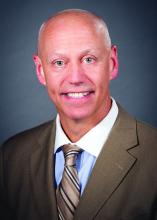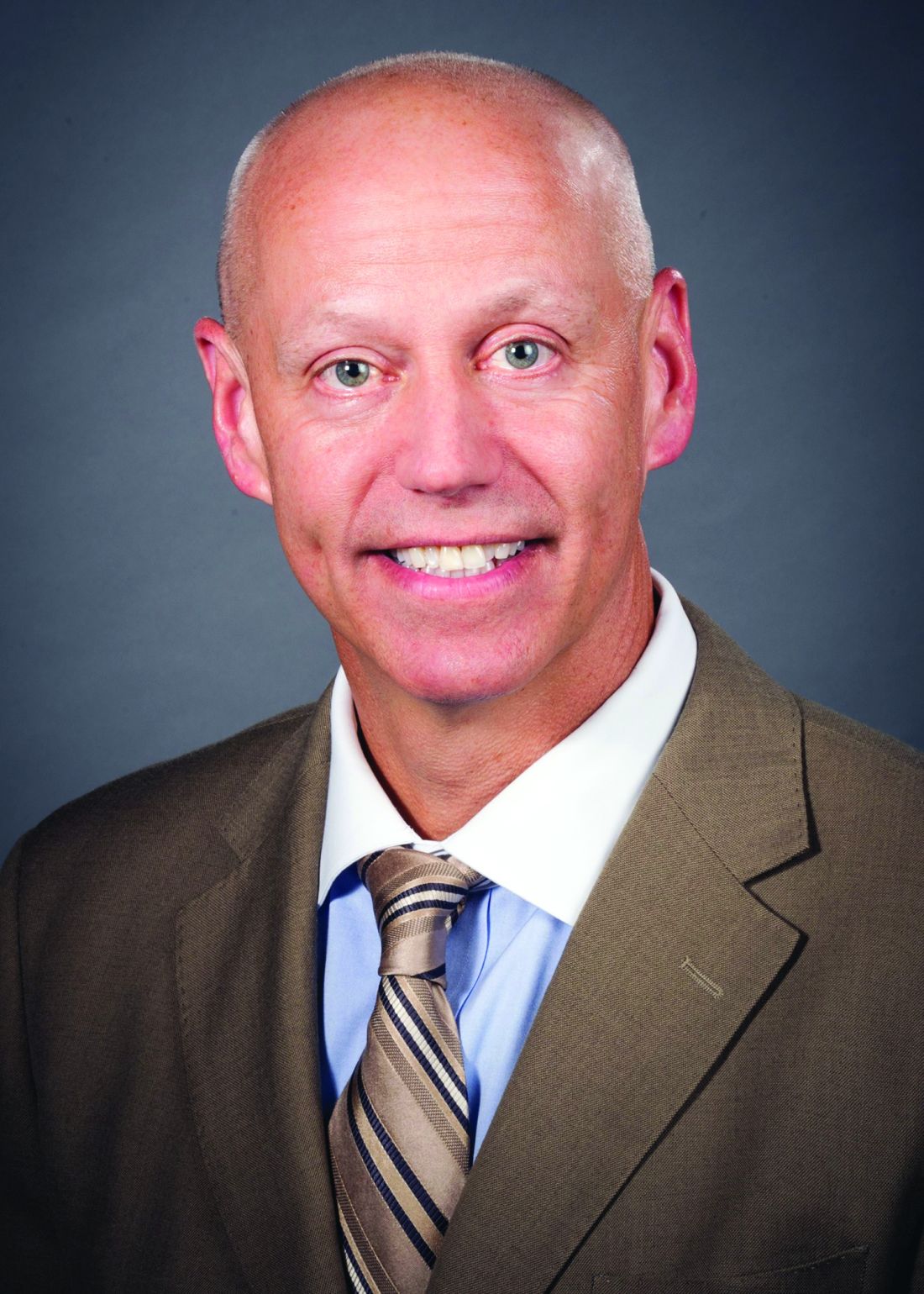User login
As the field of hospital medicine continues to grow, it is experiencing more requests for assistance with pre- and posthospital care. These increasing demands will be the focus of today’s session “Addressing the Expanding Scope of Practice in Hospital Medicine.”
“As hospital medicine continues to advance, we are being asked to help hospitals and health care systems with challenges that extend beyond the hospital,” presenter Nick Fitterman, MD, SFHM, vice chair of hospital medicine of Northwell Health in Long Island, N.Y., explained in an interview. “Sometimes, this is a natural extension of hospital medicine; other times, it may reflect gaps in primary care or the health care system in general. Hospital medicine can be supportive, but our course must be deliberate and not extend beyond our scope of practice.
“The health care system is facing a variety of challenges, which, in turn, make an impact on hospital medicine,” stated Dr. Fitterman. “Factors that result in increased demands on the field include lack of access to posthospitalization care, high-acuity patients in subacute rehabilitation, rising health care costs, and value-based payments that include ‘bundles’ of care stretching beyond hospitalization. Finally, the nation has a population that’s aging,” he continued, “thanks to the ‘silver tsunami’ of baby boomers.”
The session will include presentations by leaders in the fields of post-acute clinics and hospitals at home. Lauren Doctoroff, MD, FHM, of Beth Israel Deaconess Medical Center in Boston will discuss post-acute care clinics; David Levine, MD, of Brigham and Women’s Hospital and Harvard Medical School, both in Boston, will cover some hospital-at-home developments; and Efren Manjarrez, MD, SFHM, of the University of Miami Health System will speak about preoperative care. Dr. Fitterman will provide examples of the expanded scope of practice issues that can arise in a large health care system.
“There are a finite number of beds in any given hospital and extending our reach into pre- or posthospitalization care is an avenue to expand our book of business, cultivate new skills, and engage patients and colleagues in new settings,” Dr. Fitterman explained. “Done with a clear vision and plan and within our scope of practice, this can be quite rewarding. Executed only to meet a demand but without proper resources, this can pose a new challenge and become frustrating.”
“HM18 participants who attend the session will receive some insights into what works and what doesn’t work regarding extrahospital care for hospital medicine,” continued Dr. Fitterman. “And we hope it will help hospital medicine practitioners and groups as they determine where to focus their efforts.”
When asked about an overall take-home message for the session, Dr. Fitterman stated, “We hospital medicine professionals must be wary of accepting every challenge posed to us to solve. This session should provide those in attendance with tools that will assist in their decision making.”
Addressing the Expanding Scope of Practice in Hospital Medicine
Wednesday, 7:30-8:30 a.m.
Grand Ballroom 7B
As the field of hospital medicine continues to grow, it is experiencing more requests for assistance with pre- and posthospital care. These increasing demands will be the focus of today’s session “Addressing the Expanding Scope of Practice in Hospital Medicine.”
“As hospital medicine continues to advance, we are being asked to help hospitals and health care systems with challenges that extend beyond the hospital,” presenter Nick Fitterman, MD, SFHM, vice chair of hospital medicine of Northwell Health in Long Island, N.Y., explained in an interview. “Sometimes, this is a natural extension of hospital medicine; other times, it may reflect gaps in primary care or the health care system in general. Hospital medicine can be supportive, but our course must be deliberate and not extend beyond our scope of practice.
“The health care system is facing a variety of challenges, which, in turn, make an impact on hospital medicine,” stated Dr. Fitterman. “Factors that result in increased demands on the field include lack of access to posthospitalization care, high-acuity patients in subacute rehabilitation, rising health care costs, and value-based payments that include ‘bundles’ of care stretching beyond hospitalization. Finally, the nation has a population that’s aging,” he continued, “thanks to the ‘silver tsunami’ of baby boomers.”
The session will include presentations by leaders in the fields of post-acute clinics and hospitals at home. Lauren Doctoroff, MD, FHM, of Beth Israel Deaconess Medical Center in Boston will discuss post-acute care clinics; David Levine, MD, of Brigham and Women’s Hospital and Harvard Medical School, both in Boston, will cover some hospital-at-home developments; and Efren Manjarrez, MD, SFHM, of the University of Miami Health System will speak about preoperative care. Dr. Fitterman will provide examples of the expanded scope of practice issues that can arise in a large health care system.
“There are a finite number of beds in any given hospital and extending our reach into pre- or posthospitalization care is an avenue to expand our book of business, cultivate new skills, and engage patients and colleagues in new settings,” Dr. Fitterman explained. “Done with a clear vision and plan and within our scope of practice, this can be quite rewarding. Executed only to meet a demand but without proper resources, this can pose a new challenge and become frustrating.”
“HM18 participants who attend the session will receive some insights into what works and what doesn’t work regarding extrahospital care for hospital medicine,” continued Dr. Fitterman. “And we hope it will help hospital medicine practitioners and groups as they determine where to focus their efforts.”
When asked about an overall take-home message for the session, Dr. Fitterman stated, “We hospital medicine professionals must be wary of accepting every challenge posed to us to solve. This session should provide those in attendance with tools that will assist in their decision making.”
Addressing the Expanding Scope of Practice in Hospital Medicine
Wednesday, 7:30-8:30 a.m.
Grand Ballroom 7B
As the field of hospital medicine continues to grow, it is experiencing more requests for assistance with pre- and posthospital care. These increasing demands will be the focus of today’s session “Addressing the Expanding Scope of Practice in Hospital Medicine.”
“As hospital medicine continues to advance, we are being asked to help hospitals and health care systems with challenges that extend beyond the hospital,” presenter Nick Fitterman, MD, SFHM, vice chair of hospital medicine of Northwell Health in Long Island, N.Y., explained in an interview. “Sometimes, this is a natural extension of hospital medicine; other times, it may reflect gaps in primary care or the health care system in general. Hospital medicine can be supportive, but our course must be deliberate and not extend beyond our scope of practice.
“The health care system is facing a variety of challenges, which, in turn, make an impact on hospital medicine,” stated Dr. Fitterman. “Factors that result in increased demands on the field include lack of access to posthospitalization care, high-acuity patients in subacute rehabilitation, rising health care costs, and value-based payments that include ‘bundles’ of care stretching beyond hospitalization. Finally, the nation has a population that’s aging,” he continued, “thanks to the ‘silver tsunami’ of baby boomers.”
The session will include presentations by leaders in the fields of post-acute clinics and hospitals at home. Lauren Doctoroff, MD, FHM, of Beth Israel Deaconess Medical Center in Boston will discuss post-acute care clinics; David Levine, MD, of Brigham and Women’s Hospital and Harvard Medical School, both in Boston, will cover some hospital-at-home developments; and Efren Manjarrez, MD, SFHM, of the University of Miami Health System will speak about preoperative care. Dr. Fitterman will provide examples of the expanded scope of practice issues that can arise in a large health care system.
“There are a finite number of beds in any given hospital and extending our reach into pre- or posthospitalization care is an avenue to expand our book of business, cultivate new skills, and engage patients and colleagues in new settings,” Dr. Fitterman explained. “Done with a clear vision and plan and within our scope of practice, this can be quite rewarding. Executed only to meet a demand but without proper resources, this can pose a new challenge and become frustrating.”
“HM18 participants who attend the session will receive some insights into what works and what doesn’t work regarding extrahospital care for hospital medicine,” continued Dr. Fitterman. “And we hope it will help hospital medicine practitioners and groups as they determine where to focus their efforts.”
When asked about an overall take-home message for the session, Dr. Fitterman stated, “We hospital medicine professionals must be wary of accepting every challenge posed to us to solve. This session should provide those in attendance with tools that will assist in their decision making.”
Addressing the Expanding Scope of Practice in Hospital Medicine
Wednesday, 7:30-8:30 a.m.
Grand Ballroom 7B

